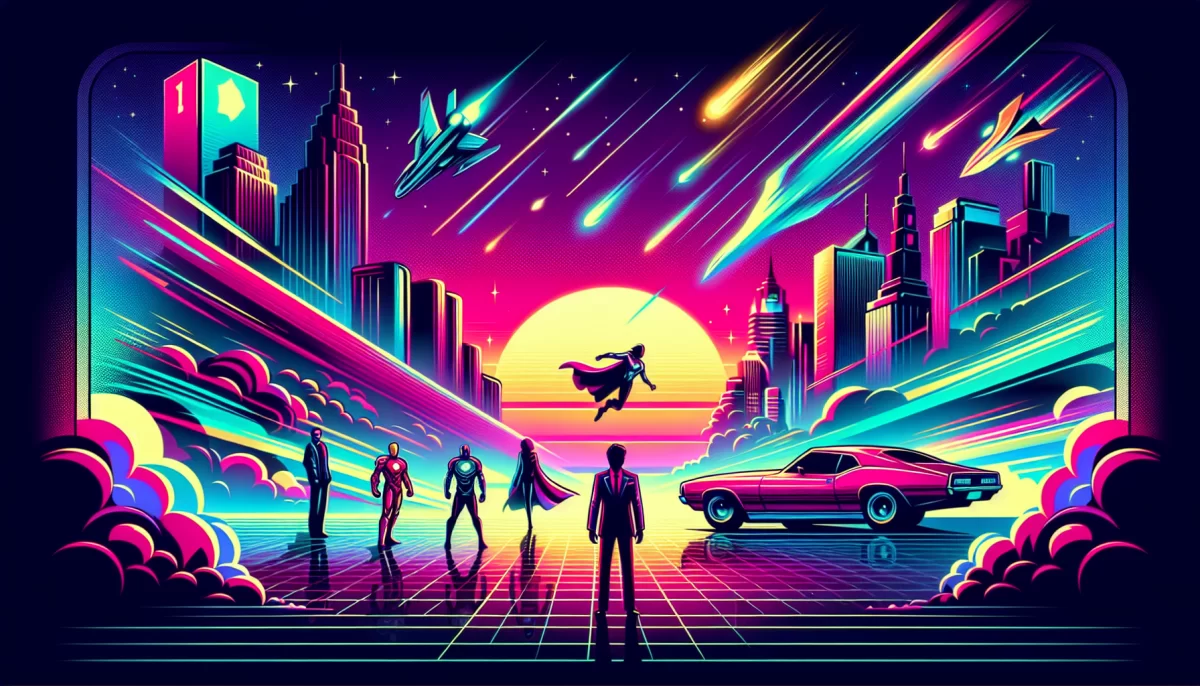
Peacemaker Season 2 Finale: Emotional Depth and DC Universe Setup
Peacemaker’s second season concludes with a powerful blend of laughter, tears, and significant narrative groundwork for the future of the DC Universe (DCU). This finale offers a satisfying emotional resolution while skillfully setting up new directions for beloved characters and the expanding DC storyline.
Introduction: A Season of Growth and Complexity
The journey through Peacemaker’s second season has been one of profound character exploration, often prioritizing emotional depth over traditional superhero thrills. Central to the finale is the evolving relationship between Peacemaker/Chris Smith (John Cena) and Emilia Harcourt (Jennifer Holland). Their bond, tested by conflict and heartbreak, culminates in a touching reunion, showcasing a nuanced dynamic that transcends typical television romance.
Key Moments in the Finale and Season Arc
Emotional Payoffs and Character Development
The finale delivers an emotional payoff rooted in months of tension. Chris and Emilia reconnect, not necessarily as romantic partners but as individuals profoundly impacted by their shared experiences. This layered portrayal reflects the show’s commitment to complex character arcs.
From Tangents to Focus: Season Turning Points
While the early episodes meandered through lighter, less focused subplots—such as Red St. Wild’s odd quest for Eagly—the season found its stride around episode five. Here, Peacemaker transitions from the familiar DCU into a parallel universe storyline, introducing a shocking twist: this parallel reality is a Nazi dimension, Earth-X.
- Episode 6 and 7 Highlights: Featuring a well-timed Lex Luthor cameo that heightened stakes, alongside a return to form for the comedic and morally ambiguous Vigilante.
- Earth-X’s Dark Satire: The Nazi dimension serves as a biting social commentary, subtly addressing real-world themes of oppression and ignorance.
Powerful Performances
John Cena shines in emotionally charged scenes, especially the primal scream following the brutal death of Auggie. His portrayal contrasts with Harcourt’s emotional restraint, presenting an authentic depiction of masculinity that breaks away from conventional action hero tropes. This aligns with contemporary research emphasizing the importance of emotional expression for male mental health, challenging outdated stereotypes (American Psychological Association, 2023).
Thematic Depth and Broader Impact
Exploring Male Vulnerability in Modern Media
Peacemaker’s second season stands out for its portrayal of a flawed yet emotionally available male protagonist. This reflects media trends toward more authentic and diverse representations of gender, which are shown to foster increased audience engagement and societal empathy (Journal of Media Psychology, 2024).
Satire and Social Commentary Through Sci-Fi
The use of the Earth-X Nazi dimension exemplifies the tradition of speculative fiction as a tool for societal critique. Satirical narratives like this resonate with viewers by addressing complex issues in an engaging way. As observed in recent studies, audiences respond well to genre media that thoughtfully incorporates political and social themes (Niemeyer, 2023).
Uncertain Futures: Setting the Stage for DCU’s Next Phase
The finale shifts attention to the future of characters and the DC Universe at large. With Rick Flag Sr. evolving into a more antagonistic figure and the group Checkmate emerging with unclear objectives, audiences are left with intriguing questions.
- Checkmate’s Role: The organization promises pivotal significance, though details remain scant, inviting speculation among DC fans.
- Character Arcs: Relationships, such as Keeya and Adebayo’s, face changes that reinforce the show’s willingness to explore mature themes and complexities.
Setting Up Future DC Films and Shows
The season cleverly integrates elements leading to upcoming DC projects, such as James Gunn’s Superman: Legacy. These connections highlight an intricate, well-planned DCU narrative strategy, expanding interconnected storytelling that has become a hallmark of successful franchises (Forbes, 2025).
Conclusion: Peacemaker’s Unique Blend of Humor and Heart
Peacemaker season 2 distinguishes itself through its balance of humor, emotional sincerity, and bold narrative risks. While at times the pacing wavered, the season’s high points reveal a show unafraid to challenge superhero genre conventions. As it carves its path within the DC Universe, Peacemaker continues to offer a fresh, compelling perspective.
As the new DCU unfolds, audiences eagerly await how these storylines and character developments will influence the franchise’s future.
Summary of Key Takeaways
- Emotional maturity: The finale deepens the complex relationship between Peacemaker and Harcourt.
- Bold storytelling: The Earth-X Nazi dimension adds a fresh, darker twist with satirical undertones.
- Character evolution: New roles and moral ambiguities set up intriguing future conflict.
- Connected universe: Narratives tie into upcoming DC films like Superman: Legacy.
Peacemaker remains a standout in superhero television, blending genre elements with emotional depth and satire, establishing a unique voice within the expansive DC Universe.


